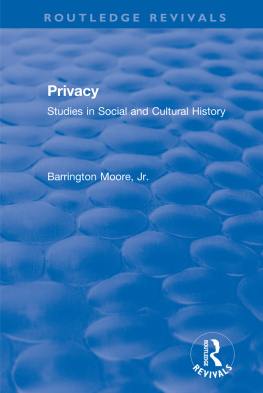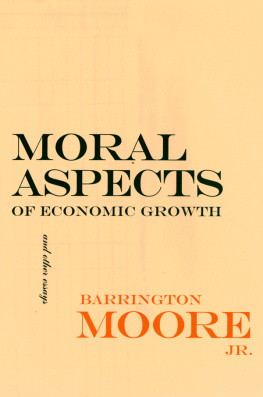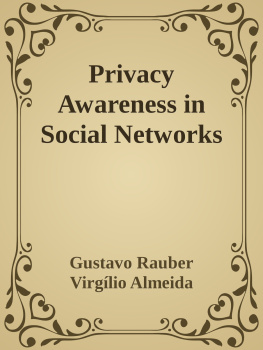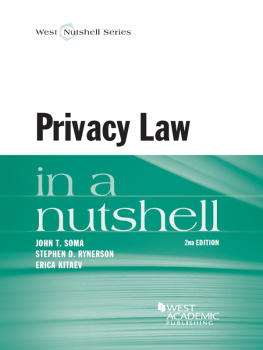First published 1984 by M.E. Sharpe
Reissued 2018 by Routledge
2 Park Square, Milton Park, Abingdon, Oxon OX14 4RN
711 Third Avenue, New York, NY 10017, USA
Routledge is an imprint of the Taylor & Francis Group, an informa business
Copyright 1984 by Barrington Moore, Jr.
No part of this book may be reprinted or reproduced or utilised in any form or by any electronic, mechanical, or other means, now known or hereafter invented, including photocopying and recording, or in any information storage or retrieval system, without permission in writing from the publishers.
Notices
No responsibility is assumed by the publisher for any injury and/or damage to persons or property as a matter of products liability, negligence or otherwise, or from any use of operation of any methods, products, instructions or ideas contained in the material herein.
Practitioners and researchers must always rely on their own experience and knowledge in evaluating and using any information, methods, compounds, or experiments described herein. In using such information or methods they should be mindful of their own safety and the safety of others, including parties for whom they have a professional responsibility.
Product or corporate names may be trademarks or registered trademarks, and are used only for identification and explanation without intent to infringe.
Publisher's Note
The publisher has gone to great lengths to ensure the quality of this reprint but points out that some imperfections in the original copies may be apparent.
Disclaimer
The publisher has made every effort to trace copyright holders and welcomes correspondence from those they have been unable to contact.
A Library of Congress record exists under LC control number: 83023524
Design: Angela Foote
ISBN 13: 978-1-138-04519-4 (hbk)
ISBN 13: 978-1-315-17207-1 (ebk)
To E.C.M.
This book is a set of exploratory studies about the nature and meaning of private concerns in several societies. Though ideas are not neglected, the emphasis is on behavior and especially the social and cultural context of behavior. At the outset I took seriously the possibility that in some societies there might be nothing at all that corresponded to our conception of private. As the reader will see, there are some societies where that is very nearly the case. More generally, in looking for the meaning of private concerns in societies very different from our own I have deliberately cast the net as widely as possible. Thus the book discusses privacy, both in the sense of refusing access by other persons in specified situations, and as private rights against holders of authority or other members of the same society. Personal privacy and private rights are linked by the notion of intrusion. Social rules protect what is private from intrusion and interference by other people.
Certain problems of definition recur in all forms of inquiry that draw upon the recorded experience of societies other than our own. To make an inquiry manageable it is necessary at the start to block off some area of human behavior for intensive scrutiny. One cannot look into everything thoroughly. But one cannot make this preliminary definition of the subject matter too narrow or too strict without severe risk of omitting vital evidence. It is not the investigator's definition of privacy and private rights that matters in this case; it is what members of other societies have felt about these issues and what they have done about themif they have even been concerned about them at all. One can learn what their conceptions were only by patient examination of evidence that is frequently limite.d and fragmentary. Sharp definitions become possible only after an investigator has acquired great familiarity with the evidence. By that point, on the other hand, precise definitions are likely to be superfluous.
Though the book closes with a few brief observations on contemporary societies, nearly all of it is about societies remote in time and space from our own. To the extent that these studies may make any contribution to understanding contemporary aspects of privacy and private rights, it is by setting them in a wider context, indicating the range of variation in private concerns and providing evidence about their early history. Such knowledge is necessary in assessing the prospects for desirable as well as dangerous trends in our own times. It is, however, by no means the only necessary kind of knowledge. For the curious reader I have therefore included in the bibliography a brief selection of works on privacy in the modern world.
The book begins with an examination of some anthropological evidence. This is the best kind of evidence for discovering the range of known human behavior. For the most part I have concentrated on very simple societies without chiefs or priests. Though such societies are of course in a strict sense our contemporaries and anything but ancient, with their primitive technologies and relatively simple social structures they may well reflect some modes of behavior that antedate "civilized" societies with a written language. The second chapter analyzes ancient Athens, one of our cultural ancestors. With some knowledge of ancient Greek I had long planned to study the nature of public and private concerns in Athenian society as soon as the leisure of retirement made this possible. Though I had thought this would be a long undertaking, even a moderately thorough investigation took much less time than anticipated. At that point I decided to add two more studies, one on the Old Testament because the ancient Hebrews were also one of our most important cultural ancestors. The other study is ancient China during the age of the philosophers, selected in order to take one sounding into a civilized society outside the orbit of Western civilization. In each case I have relied mainly on primary sources, today accessible in quite good translations.
Two considerations led to the choice of privacy as a topic for research. I have always had an unusual fondness for privacy, especially the privacy necessary for intellectual work. Hence I wanted to see how other cultures treated this problem and if they were even aware of it. At the same time I have always set a high value on social mechanisms that protect the individual against arbitrary political and economic demands. The less one believes in the prospects of a perfectly just society the more one is likely to value protections against injustice. Both considerations may strike some potential readers as a reflection of "late bourgeois" attitudes and values and therefore subject to immediate dismissal. But injustices and intrusions are not necessarily easier to bear because they come with a socialist label.
Though I have tried to indicate the nature of the evidence in the course of discussing specific practices and ideas, a few general remarks will be helpful here. In the case of anthropological evidence a great deal depends on the quality of the anthropologist. One gets a sense for this quality, or the lack of it, mainly from reading a great many monographs and noticing the amount and kind of detail an author presents, the length of time the anthropologist has spent in the field, the internal consistency of the author's claims, and similar matters. There is no escape from some element of subjectivity in the anthropologist's report and the reader's interpretation of that report. But there is a bedrock of hard facts to work with. In general I have tried to find good anthropological monographs with detailed accounts of daily life, the only kind likely to contain evidence relevant to privacy, and feel fortunate in having come upon several from widely separated parts of the world.














